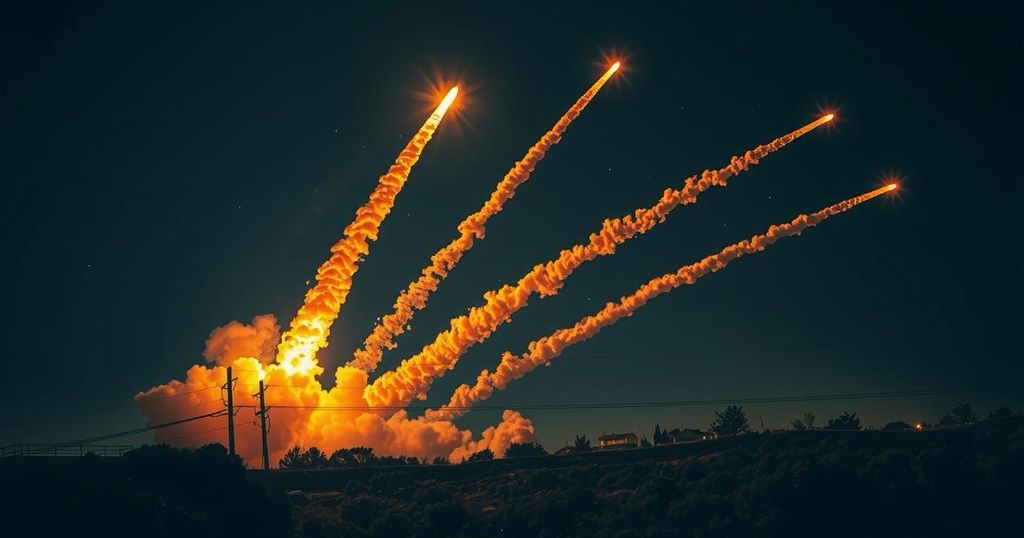Hezbollah has fired 135 rockets into Israel, prompting IDF strikes in Beirut. U.S. expresses concerns over Israel’s actions against the Lebanese army, while diplomatic efforts for ceasefires in Gaza and Lebanon continue. Senator Graham suggests an Israel-Saudi normalization deal may occur soon, indicating active U.S. engagement in Middle Eastern diplomacy.
On Wednesday, Hezbollah launched approximately 135 rockets into Israeli territory, prompting a response from the Israel Defense Forces (IDF), who subsequently conducted airstrikes in the Dahiyeh neighborhood of Beirut. This skirmish unfolded against the backdrop of growing tensions in the region, with significant attention focused on U.S. diplomatic efforts aimed at establishing ceasefires in both Gaza and Lebanon. National Security Communications Advisor John Kirby noted that these diplomatic efforts would not be pursued unless there remained opportunities for a resolution, despite the continued violence. Further complicating the situation, U.S. Defense Secretary Lloyd Austin expressed Washington’s concerns regarding Israeli strikes against the Lebanese armed forces in a conversation with his Israeli counterpart. He urged the need for Israel to safeguard both the Lebanese military and UN peacekeepers operating within the region. Additionally, U.S. Senator Lindsey Graham indicated that a normalization agreement between Israel and Saudi Arabia could potentially be finalized before the end of the year, contingent on President Biden’s administration mobilizing necessary congressional support. Graham’s comments signal ongoing U.S. interest in enhancing Middle Eastern alliances against shared threats, particularly from Iran. In other developments, reports emerged of U.S. and British strikes on targets in Hodeidah, Yemen, as the conflict there continues to escalate. Meanwhile, recent explosions were heard in Damascus, Syria, heightening concerns over regional stability.
The article pertains to the escalating conflicts involving Hezbollah and Israel, with Hezbollah firing rockets into Israeli territory and IDF retaliating with strikes in Beirut. This tit-for-tat conflict has considerable implications for U.S.-Middle Eastern relations, particularly in terms of the Biden administration’s diplomatic endeavors for ceasefires in Gaza and Lebanon. This summary highlights the interconnectedness of military actions and diplomatic negotiations in the region, especially regarding the potential normalization of relations between Israel and Saudi Arabia. The background of the ongoing Israel-Hamas conflict illustrates the broader security dynamics at play, particularly the recent hostilities triggered by Hamas’s unprecedented attack on October 7, which has left many casualties and hostages.
In summary, the article outlines the recent hostilities between Hezbollah and Israel, highlighting the subsequent IDF strikes in Beirut and U.S. concerns regarding the safety of the Lebanese armed forces. Continuing diplomatic efforts by Washington signal a commitment to addressing regional tensions and promoting ceasefire agreements amidst violence. Furthermore, the prospect of an Israel-Saudi normalization agreement serves as a focal point for U.S. foreign policy in the region, aiming to create a unified front against threats like Iran.
Original Source: www.jpost.com






